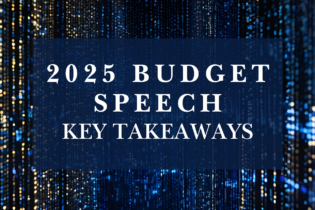 The B-BBEE Amended Codes of Good Practice have resulted in increased costs for 65% of South African businesses, according to second quarter research from Grant Thornton’s International Business Report for 2016.
The B-BBEE Amended Codes of Good Practice have resulted in increased costs for 65% of South African businesses, according to second quarter research from Grant Thornton’s International Business Report for 2016.
- increase of spend targets under skills and procurement
- increase of implementation costs in terms of specialists, service and solution providers, as well as internal capacity
Contributions towards Enterprise Development, and the new sub-element, Supplier Development, make up 15 out of the 109 points on the new scorecard. Lawrence explains that these two sub-elements fall under the old Preferential Procurement element, which has been renamed Enterprise and Supplier development.
More than half (55%) of local companies reported that the B-BBEE Amended Codes of Good Practice have affected their business in terms of tendering or proposing for new business with private or government related entities, while 38% said there was no change. Very similar results were obtained when companies were asked if the Amended Codes had resulted in their company changing some suppliers to improve their overall BEE score, that is, to buy from 51% and over black-owned suppliers. Fifty-five percent said yes, while 39% said no. “The tougher scorecard will result in many companies dropping three or four levels and in some cases, becoming non-compliant under the Amended Codes,” says Lawrence. “This will reduce the points allocated for BEE status when scoring for a tender. However, smaller companies with a turnover of under R10 million, and particularly those with at least 51% black ownership, will now automatically comply with a higher BEE status.” Lawrence goes on to say that the focus of the procurement scorecard has altered significantly towards purchasing from black-owned suppliers. Under the “old” codes, BEE spend was measured out of 20 points, with three of those coming from spend with companies that were 50% black-owned and two points from at least 30% black-owned suppliers. “Under the amended codes, BEE spend is measured out of 25 points, with nine being allocated towards companies that are at least 51% black-owned and four points for suppliers with at least 30% black women ownership, an increase in emphasis of 27%.” Proactive companies are taking a good look at their supplier bases and changing to black-owned suppliers for non-core items to create quick wins. “Stationery, security and cleaning companies are currently the big winners here,” notes Lawrence. Lawrence gives the following advice on how businesses could reduce costs and maximise return on investment? “First, companies must understand where they are right now. Second, they need to understand the inputs and analyse current spend in all areas to identify those that already qualify for BEE. Third, calculate the gaps towards the target and implement corrective action. Fourth, monitor constantly towards compliance. “These steps, managed internally by a transformation manager and tracking software, or through external consultants, need to be part of the strategy at board level to make a cost-effective difference to the scorecard,” she concludes.






